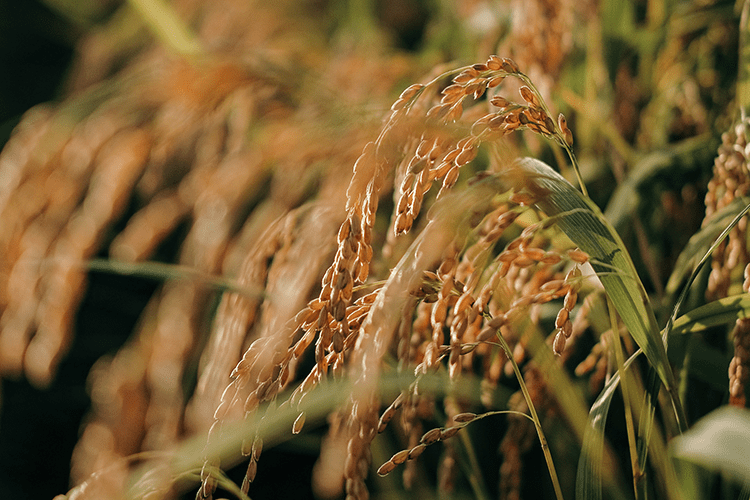DECEMBER 2023 TOOLKIT
CONNECTING AGRICULTURE, NUTRITION, AND HEALTH
Land-grant universities play crucial and innovative roles in connecting agriculture, nutrition, and health through research, education, and Extension. They are also key partners in federal initiatives to improve public health through efforts such as advancing responsive agriculture and precision nutrition.
In September 2023, the U.S. Department of Agriculture (USDA) launched a pilot nutrition hub under the Agricultural Science Center of Excellence for Nutrition and Diet for Better Health (ASCEND for Better Health) initiative. This hub is in partnership with Southern University, a historically black 1890 land-grant university in Louisiana and host of the USDA-funded 1890 Center of Excellence for Nutrition, Health, Wellness and Quality of Life.
According to USDA, this new hub will be an engine for providing science-based, nutrition-related information at the community level, particularly in underserved communities disproportionately impacted by diet-related chronic diseases. Future hubs will concentrate on additional high-need communities. This regional hub network links USDA research and programs to deliver timely, tailored, and authoritative information and decision-making tools.
Source: USDA Launches Nutrition Hub to Combat Diet-Related Diseases in Underserved Communities | USDA
This effort builds upon the White House Conference to End Hunger and Build Healthy Communities held in September 2022, which was the first White House conference of its kind in 50 years. The federal government recognizes that they cannot end hunger and reduce diet-related diseases without crucial collaboration with universities; private sector; state, tribal, local, and territory governments; and nonprofits.
Source: EXECUTIVE SUMMARY: Biden-Harris Administration National Strategy on Hunger, Nutrition, and Health | The White House
To help accomplish these massive goals, land-grant universities are advancing responsive agriculture. This encompasses a range of practices and technologies including:
- Precision agriculture that develops and uses technology (e.g., GPS-guided tractors and sensors) to help farmers optimize field-level management.
- Climate-smart agriculture that advances farming practices and strategies to mitigate and adapt to changing climate conditions and develop resilient crop varieties.
- Data-driven farming that utilizes data and analytics to improve decisions about crop management, resource allocation, and farm operations.
Land-grants are also on the cutting-edge of precision nutrition, which moves from a “one-size-fits-all” to a personalized approach for dietary and lifestyle recommendations to improve health outcomes. Key components of precision nutrition include:
- Genetic information that analyzes an individual's genetic makeup to understand how their genes may influence responses to different nutrients and dietary patterns.
- Microbiome analysis that considers the composition of an individual's gut microbiome to tailor recommendations that support a healthy gut environment, nutrient metabolism, and overall health.
- Lifestyle habits that consider factors (e.g., physical activity, sleep patterns, stress levels) which significantly impact how the body processes and utilizes nutrients.
Through their vision, dedication, and expertise, professionals at land-grant universities are improving the health and lives of all Americans every day.
Examples from Land-grant Impacts
Scientists Across the Country Working to Create More Nutrient-Dense Diets
Many American diets don’t include enough basic nutrients, which can lead to health issues as we age. Low-nutrient diet lead to issues, including macular degeneration, Alzheimer’s disease, obesity. and diabetes. Improving the nutritional quality of basic crops through plant breeding is a cost-effective, sustainable way to address these nutritional needs. Researchers at land-grant universities across the country are seeking ways to make the foods we eat each day more nutrient-dense, for life-long health and wellness.
Community Nutrition Programs Improve Healthful Outcomes
Community Nutrition Education Programs, a service of the Land-grant University System, use Expanded Food and Nutrition Education Program (EFNEP) and Supplemental Nutrition Assistance Program Education (SNAP-Ed) funding to educate and empower low-income individuals, families, school-age youth and pregnant teens. Extension educators across the country deliver research-based, hands-on learning experiences on diet quality, food safety, physical activity, food security and food resource management through various virtual platforms and in-person classes.
Diabetes Prevention and Patient Empowerment
One in three adults in the United States has prediabetes, and 10.5% of the population has diabetes. Both increase the risk for heart disease and stroke among other negative health outcomes. Extension educators teach participants to eat healthy, manage stress and increase physical activity. This all helps manage weight and prevent diabetes and other chronic diseases. A collaborative approach helps participants find solutions to common barriers for living a healthy lifestyle.
Examples from Multistate Research Fund Impacts
Researchers Across America are Advancing Nutrition
Collaborative research by land-grant universities plays an important role in advancing our understanding of human health and nutrition and improving access to and consumption of safe, high-quality, nutritious foods nationwide.
Understanding Bioactive Dietary Chemicals
The foods and drinks we consume contain natural chemicals (vitamins, minerals, fat, sugar, protein, flavonoids, toxicants, hormones, and more) that can positively or negatively impact human health. Since 1971, a multistate project has brought together researchers at 22 land-grant universities to conduct cutting-edge research on the effects of dietary bioactive chemicals on human health, chronic diseases, and food safety.
SOCIAL MEDIA
SAMPLE POSTS
RESEARCH
From responsive agriculture to precision nutrition, land-grant university researchers are leading the charge to build a science-based healthier and more sustainable world. [PROJECT EXAMPLE] #AgIsAmerica
EDUCATION
Students in our [PROGRAM] major are equipped with the skills they need to become the next generation of [nutritionists/food scientists/public health professionals/other] to help build a healthier future. [MAJOR PAGE LINK] #AgIsAmerica
EXTENSION
Cooperative Extension makes healthy communities. [@SCHOOL] Extension agents like [NAME] interpret the latest science in agriculture, nutrition, and health, and bring this information directly to the [STATE/COUNTY] public. [PROJECT LINK] #AgIsAmerica @Ext100Years
Feel free to reach out to us with specific posts that you would like @AgIsAmerica to share. Please email your request to Kim Scotto at agcomms@aplu.org or use #AgIsAmerica.
HASHTAGS AND HANDLES
HASHTAGS
#LandGrantUniversities
#AgIsAmerica
HANDLES
|
Ag is America |
@AgIsAmerica |
|
APLU Ag |
@APLU_Ag |
|
Sec. Vilsack (Secretary of Agriculture) |
@SecVilsack |
|
USDA |
@USDA |
|
USDA National Institute of Food & Ag |
@USDA_NIFA |
|
APLU |
@APLU_News |
|
Cooperative Extension |
@Ext100Years |
CALENDAR
DECEMBER HOLIDAYS
MONTHS
National Pear Month, #NationalPearMonth
Worldwide Food Service Safety Month, #WorldwideFoodServiceSafetyMonth, #WFSSM
DAYS
December 1 – National Pie Day, #NationalPieDay
December 4 – Wildlife Conservation Day, #WildlifeConservationDay
December 5 – International Volunteer Day, #InternationalVolunteerDay
December 5 – World Soil Day, #WorldSoilDay, #WSD
December 12 – National Poinsettia Day, #NationalPoinsettiaDay
December 17 – National Maple Syrup Day, #MapleSyrupDay
December 30 – Bacon Day, #BaconDay
December 31 – New Year’s Eve, #NewYearsEve
Source: December 2023 - National Day Calendar





